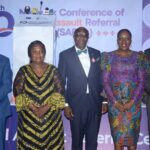What is the gas to power project all about?
The gas to project is a project that is being implemented in Egbeda under Emohua LGA, of Rivers State.
It is a project that is hoping to use flared gas from Shell Petroleum Development Company (SPDC) flow station to generate electricity for distribution in Egbeda community.
The project will deploy a 0.5mw gas turbine to produce and distribute electricity to about 3,000 households and 500 small businesses as well as five health centres and six schools.
The project design has a strong community ownership element in-built: the entire assets and operations are to be managed and maintained by a community-based utility company that will be owned by the community. Significantly, the project will help to give communities a real stake in oil production in the region. NNF is to manage the project.
What is novel about the project?
What is novel about this project is that we do not have any community in Nigeria that is doing anything like this. It is the first time in Nigeria that this is being done.
This is planned to be on a sustainable basis. We do not intend to distribute electricity for free. The expectation is that each beneficiary of this project will pay for use of electricity.
We have gone ahead to incorporate a company called Egbeda Community Development Initiative (ECDI). The idea is that this company will be the one that will manage the project purely on commercial principles such that you don’t go looking for donors to put in money once the project is upstream.
By the time the project breaks even, the expectation is that members of the board of the project and their staff would run the project in a sustainable manner.
The people in the community have already been sensitised, they know that this project is coming on board and their expectation is that they won’t pay for electricity.
We have gone ahead to do a willingness to pay survey so that we can actually know if this project is economically viable.
From the survey we have been able to get the people’s willingness to pay for electricity. We have done other studies, the sale resisting test to be sure that we site the plant there. We have gone ahead to do an environmental management plan such that we are ready to implement once we go ahead and do the construction of the plant itself.
Who is this project targeted at?
The expectation is that there are 3000 households that will benefit from the electricity. You have health institutions, schools and SMEs in the community that will benefit from the project.
What form of synergy have you built with existing energy companies?
We also believe that we should collaborate with other partners. There is no single individual or entity that can do it all alone. So we are open to collaboration. What we actually intend to do is to approach one of this private organisations to work with the ECDI, because ECDI is a new community owned company, they will be recruiting people but the advantage of partnering with a private organisation that is already into distribution of electricity is that they can benefit from their experience and help ECDI grow and run on its own. So, that’s the plan.
This project was conceived since 2012 and hasn’t come on stream yet. What are the constraints so far?
We have a few challenges. We have three partners; we have SPDC, Department for International Development (DFID) and European Commission (EC).
Outside those donor partners there are other stakeholders we are working with: we are working with the local and state governments.
We are hoping that we will have a relationship with the ministry of power in Rivers State so that their engineers will mentor those who would work in the ECDI . We have tried to get some appointment so that we will be able to discuss with the minister but we have not been able to do that.
The other challenge we have is cost. The longer we wait, the cost of equipment will be going up. We are hoping we will be able to get other people to bring in resources to bring this project to reality.
What is the long term vision of this project?
We are hoping that over the years every household in Egbeda community and its environs will have access to light.
In over 10 years they have not had electricity, they are not connected to the national grid. Our hope and our aspiration is that at the end of this project every business, every public infrastructure in that community will have access to electricity.
 Join Daily Trust WhatsApp Community For Quick Access To News and Happenings Around You.
Join Daily Trust WhatsApp Community For Quick Access To News and Happenings Around You.


